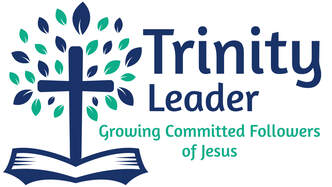 Many of you know that I love old hymns. As much as the new choruses draw us into a heart of worship, you just can't beat the theology of the old classics. There are many songs that speak about our hope in Jesus--after all, that is the whole point of our faith. But none support this idea quite like the hymn, My Hope is Built on Nothing Less:
There is some much in this hymn: Christ is the foundation upon which we stand; He supports us at all times; there is nothing that we can do in our own strength or might to help sustain ourselves; Christ holds us tight through the storms of life--even when everything has gone wrong; and finally, He is our reason for standing before God which assurance of life forever. Redemption is a word not often used outside of 'Christianese' so I'll explain a bit what it is. It is a legal term dealing with the idea of being purchased from slavery or debts; much like you redeem a coupon to reduce the cost of your Swiffer sweeper or Glade Plug-ins. You exchange the value of the coupon for the product. The logical question is what do we need to be redeemed (bought back) from? The list starts with disobedience to God (who created us, loves us, and sustains us) and the list continues from there: worries, fear, anger, depression, jealousy, envy, bitterness, woundedness, diseases... All these things are a consequence of our failure to recognize God as our Creator, and our Master. God is all holy and all good which means He can't stand to be in the presence of these things (it is like trying to mix oil and water, it just won't work). But the hope we have is in the death (ironically enough) and the resurrection of Jesus, the Son of God who has paid the price for our short-comings before God. When God looks at those who have put their confidence in the all-sufficient death of Jesus, he sees us as holy--Jesus' value has been assigned to us. That doesn't mean life suddenly becomes easy, but as the hymn suggests that we can endure when the going gets tough because we are drawn up into life with Christ. The burden is lifted from us to perform, to earn our way to God's good favour, or to be our own source of strength during the difficult times of life. Jesus is the rock upon which we stand, the rock which will never give way. Image used under Creative Commons: Attribution: https://www.flickr.com/photos/keepitsurreal/2067277798/. No changes made.
0 Comments
 I'll share some reflections on the past week which my family and I spent at Camp Simmie. It was a refreshing week for me: the people there are awesome, the kids had a blast, the worship was Spirit-filled, and the speakers were out of this world (I may be a little biased). During the morning study session, I led us in thinking about the hope that we have as God's people. It is a pretty basic concept but it is one that we need to return to constantly. All we have to do is look around us at the world in which we are living to get discouraged. It could be the pile of bills waiting to be opened and paid, a sickness of a family member that is causing them pain and discomfort, or just the everyday grind of life. We were reminded this week that these things were not in God's original design (they are a result of humanity's continued rejection of God's working in us) and that they will continue until Jesus comes again to make God's dwelling place with humanity. But we were also reminded that there is hope in the midst of disconcerting times. In fact, God alone is the only source of lasting hope that we can have! The next few posts will draw out the idea of our hope being rooted fully in God. Our hope is in God the Father's Faithfulness. When you are reading Scripture, one of the most prominent themes is that of God's action on behalf of His people. The Bible is a story of God's faithful work in His people. The Bible is a story of God's faithful work in His people Go ahead and read it! Time and time again, you'll see stories of God's promise and action on behalf of the people He created and loves. Turn to Genesis 21:1 and you'll see God fulfilling the promise He gave to Abraham and Sarah that they'd have a son in their old age. Turn to Genesis 45:4-8 and you'll hear of God's plan for feeding His people in the midst of famine, through the 'disposal' of the despised brother Joseph. The whole book of Exodus is one story after another of God's action in bringing His people out from under the oppression of slavery in Egypt. (Especially Exodus 15 where the story is retold in song). There are countless other examples that'd I'd encourage you to take note of because we have a God of promises and covenant! The point of having a collection of such stories is that we need to be reminded of God's faithfulness, His constant action on behalf of His people, His unending love for us in the good times and especially in the bad. We are quick to forget and quick to complain. God's Word constantly calls us back to trust in God's all-sufficient action in our lives. I'd encourage you to read Psalm 136, which is a retelling of the work of God for His people. After reading it, perhaps you'd find it helpful to write your own Psalm with the refrain, "His love endures forever." Fill in the blanks with your story of remembering God's actions toward you. Here is a template for you to print off, fill out, and keep in a prominent place to remind you of God's faithful work in your life. Image: Public Domain, http://pixabay.com/en/rainbow-nature-horizon-colors-110953/
How would you respond to the question: Who is God to you? Take a moment to think about it. My guess is that this is a question we don’t often ponder even though it should be central to our lives as followers of Christ. Who God is to us is so important because it takes the focus off ourselves and rightly readjusts it toward God. A.W. Tozer, an influential preacher and author from the first half of the 20th century, once said, “What comes into our minds when we think about God is the most important thing about us.” That is not the way we are used to thinking; we are more accustom to thinking about our own successes and failures rather than who God has proven Himself to be in and through us. What comes into our minds when we think about God is the most important thing about us. Scripture provides a constant reminder of who God is and how He has faithfully worked in the lives of His people. You could open to almost any page in the Bible and see that reality staring back at you. The Psalm on Sunday (145) reminded me of how our lives have been designed to be God-oriented; to be focused on His good work in us. The Psalmist begins with words of praise and exaltation and then continues the Psalm by making declarative statements about who God is:
Great is the Lord and most worthy of praise. The Lord is gracious and compassionate, slow to anger and rich in love. The Lord is good to all; he has compassion on all he has made. The Lord is trustworthy in all he promises and faithful in all he does. The Lord is righteous in all his ways and faithful in all he does The Lord is near to all who call on him. The Lord watches over all who love him. While the question, "Who is God to You?" seems subjective, the answer is objective. These statements that the Psalmist (David) wrote reveal the truth of God as they speak about God's unchanging character as one who is loving, caring, and infinitely compassionate. They recount who God is, what He has done in David’s life, and hold out the promise of God’s continued good work in David’s life. But these are just a fraction of the ways that God could be described and much is dependent on your life circumstances. Either God needs to reveal Himself in a certain way to you or you can only see a part of who God is because of where you are in your life. No matter the state of your relationship with God, it is important to reflect on His good work in your life. Take some time today to orient your life around God and think about how would you answer the question, “Who is God to you?” Perhaps the answer comes easily to you or maybe you are struggling to see how God has worked and is working in your life. Take time to look; examine your life and see how God is revealing Himself to you today. He is present even when we have trouble seeing Him or when we choose not to see Him.  The old maxim, "Forgive and forget" is not particularly helpful in many situations as it puts the burden on us to hurry up and get over things, usually without actually dealing with the issue. On an interpersonal level, this has had disastrous consequences for many people leaving them with wounds that are covered over but aren't healed. The redeeming quality in this line of thinking is the desire to help the person make a fresh start. God often calls us to hurry up and get over things, more specifically, to make a clean break from those things that were in the way of fully living for Him. As I continued to read from 1 Kings, I was convicted by the call of Elisha and especially its corresponding parallels with New Testament themes and my own life. Here's the story from 1 Kings 19:
When the call of God came on Elisha through the prophet Elijah, look at how quickly he responded. He didn't just drop everything and go. Rather he make a complete break with his old way of life: saying goodbye to his family (a radical step in itself in ancient times), burning his livelihood, and having a celebratory farewell feast with it! There was no going back for Elisha, he was all in.
That is the kind of clean break God desires from us when our whole lives are entrusted to him. Put aside the old way of living, the ways we remain self-dependent and self-sufficient. It is a call to live in the radical love, grace, and mercy of Jesus Christ who was the ultimate sacrifice for our sins so that we stand before our Creator as ones who are holy and righteous in His sight. The only authentic response to a love so amazing is to surrender ourselves to the One who calls us, to make a clean break from those things that we are holding onto that hinder our following Jesus wholeheartedly. "Therefore, if anyone is in Christ, the new creation has come: The old has gone, the new is here!" 2 Cor. 5:17 Today God is calling you into new life with Him. What is the Holy Spirit calling you to give up in order for you to fully live in the fresh start that God has given to you? God is calling. Are you willing to follow potentially at great cost? Are you ready to burn the plough of your old way of living to set off on a new journey with God? |
AuthorPastor J-M shares some occasional thoughts and musings on our life together as followers of Christ. The views are his own. Archives
October 2023
Categories
All
|
- Home
- About
-
Learning & Growing
-
Sermons
>
- 1 Samuel
- Lent
- Spiritual Conversation
- Advent
- 1 Timothy
- Single Messages
-
Older Sermons
>
- Judges
- Joshua
- Galatians
- Lamentations
- 1 Peter: Living Hope
- Acts
- What Does This Mean?
- Gospel Identity: Gospel Living
- Nehemiah
- Questions of Faith
- Proverbs
- Hebrews
- Sermon on the Mount
- 1 Thessalonians
- Psalm 23: Walking with the Lord
- I Believe: The Apostles' Creed and a Living Faith
- 1 Corinthians
- Difficult Questions
- Genesis: God's Endless Faithfulness
- The Lord's Prayer
- Mark
- Genesis
- Bible Studies >
- Kids
- Blog
-
Sermons
>
- Worship Videos & Resources
- Contact
- Home
- About
-
Learning & Growing
-
Sermons
>
- 1 Samuel
- Lent
- Spiritual Conversation
- Advent
- 1 Timothy
- Single Messages
-
Older Sermons
>
- Judges
- Joshua
- Galatians
- Lamentations
- 1 Peter: Living Hope
- Acts
- What Does This Mean?
- Gospel Identity: Gospel Living
- Nehemiah
- Questions of Faith
- Proverbs
- Hebrews
- Sermon on the Mount
- 1 Thessalonians
- Psalm 23: Walking with the Lord
- I Believe: The Apostles' Creed and a Living Faith
- 1 Corinthians
- Difficult Questions
- Genesis: God's Endless Faithfulness
- The Lord's Prayer
- Mark
- Genesis
- Bible Studies >
- Kids
- Blog
-
Sermons
>
- Worship Videos & Resources
- Contact

 RSS Feed
RSS Feed